Intermittent Fasting After Bariatric Surgery
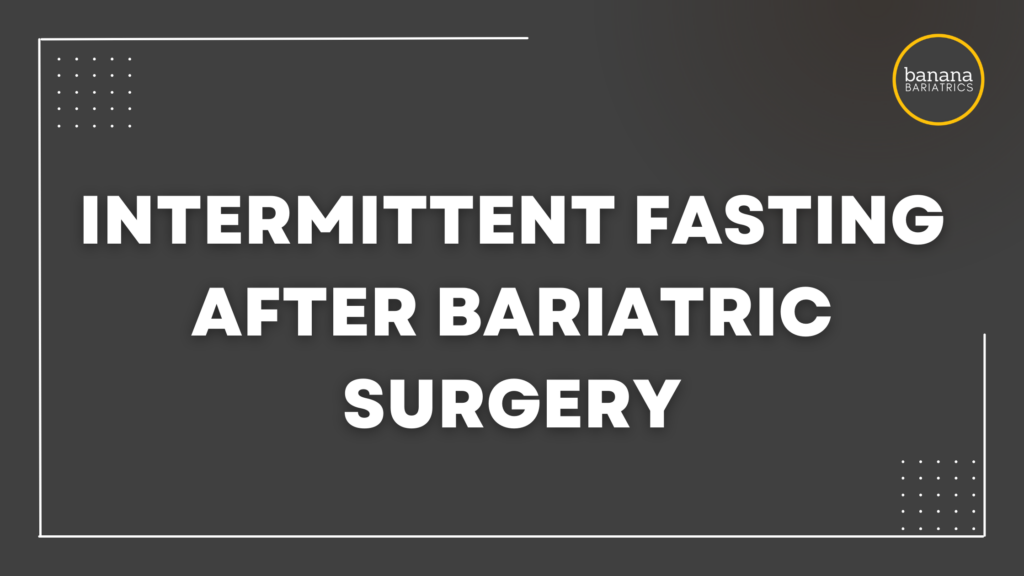
Intermittent fasting (IF) has emerged as a popular dietary approach, characterized by cycles of eating and fasting periods. It promises benefits such as weight loss, improved metabolic health, and enhanced longevity. However, individuals who have undergone bariatric surgery face unique dietary challenges and considerations. This blog post will review intermittent fasting for weight loss and also for religious purposes following recovery after bariatric surgery while offering insights and practical guidelines to ensure safety and effectiveness.
Understanding the Basics of Intermittent Fasting
Intermittent fasting involves alternating cycles of fasting and eating. Common patterns include the 16/8 method, where individuals fast for 16 hours and consume all their daily calories within an 8-hour window, and the 5:2 approach, which involves eating normally for five days and significantly reducing calorie intake for two non-consecutive days each week.
Post-Bariatric Surgery Nutritional Needs
After bariatric surgery, patients experience a drastic change in their digestive system’s structure, impacting how nutrients are absorbed and processed. Key nutritional considerations include:
- Enhanced Protein Requirements: To support healing and maintain muscle mass, a higher intake of protein is essential. Guidelines recommend consuming 60-80+ grams of protein daily.
- Hydration: Adequate fluid intake is crucial to prevent dehydration. Aim for 64+ oz daily.
- Vitamin and Mineral Supplementation: To avoid nutritional deficiencies, always continue taking a bariatric multivitamin, iron, and calcium citrate supplements daily throughout times of fasting.
Is Intermittent Fasting Safe After Bariatric Surgery?
While intermittent fasting (IF) offers numerous health benefits, it requires careful consideration after bariatric surgery. The reduced stomach size and altered digestive process necessitate a continuous intake of small, nutrient-dense meals to meet the body’s needs. Intermittent fasting, especially in its early stages post-surgery, might pose risks such as nutritional deficiencies, low sugar, and dehydration.
- Gradual Introduction: If considering IF, one should wait until the post-operative diet has fully transitioned to solid foods and nutritional stability has been achieved. Some Bariatric surgical teams request that patients wait a certain amount of time after surgery prior to starting intermittent fasting. Please check first with your Bariatric Team before beginning intermittent fasting.
- Customized Fasting Windows: Shorter fasting periods may be more suitable, ensuring adequate nutrient intake while accommodating the smaller stomach capacity.
Religious Fasting After Bariatric Surgery
The American Society for Metabolic and Bariatric Surgery (ASMBS) has recognized the importance of providing guidance on religious fasting for individuals who have undergone metabolic and bariatric surgery (MBS). Fasting is categorized into calorie restriction, alternate-date fasting, and dietary restriction, involving either partial or total abstinence from food and beverages or the omission of specific dietary components. Patients who have had weight loss surgery and are considering fasting face increased risks, including dehydration, inadequate macronutrient (especially protein) and micronutrient intake, exacerbation of food intolerances, and potential psychosocial impacts. The timing relative to the surgery and the type of procedure significantly influence these risks.
Incorporating Religious Fasting into Post-Bariatric Surgery Life
Bariatric patients are advised to consult with their healthcare providers to assess their risk level before participating in religious fasting. High-risk patients are generally advised against fasting, while those at low risk may proceed with caution, following specific guidelines.
The American Society of Metabolic and Bariatric Surgery recommend the following 10 guidelines when fasting for religious purposes:
- Bariatric patients should follow up with their surgeon and interdisciplinary team prior to fasting for assessment and guidance with safe fasting practices after bariatric surgery
- Patients with diabetes are encouraged to consult with their healthcare clinicians to make appropriate medication adjustments of oral hypoglycemic agents and/or insulin.
- All patients who want to fast should be prescribed a proton pump inhibitor (ie: Pantoprazole / Omeprazole) to be taken daily for the duration of the fasting period.
- Drink adequate fluids, preferably water, and maintain adequate hydration of >1.5 L/d (goal >64oz/day)
- When breaking the fast or preparing before the fast, eat hydrating foods such as vegetables, salads, fresh fruit, clear broths, and soups
- Consider sugar-free, electrolyte-containing beverages if fasting days are during high temperatures or high humidity, which may cause increased sweating and increased risk of dehydration
- Avoid alcohol, caffeine, carbonation, and sugary beverages
- Avoid excessively salty or spicy foods because they may contribute to dehydration
- Limit sweets (<10% of daily calories per day) to avoid dumping syndrome, empty calories, and increased risk of dehydration
- Eat balanced meals before/after fasting that includes whole grains, lean proteins, and unsaturated fats. Aim for 60-120g of protein daily (0.8-2.0g/kg body weight per day)
- Avoid excessively fatty foods such as those which are fried, processed, or contain high amounts of saturated fats
- Consider eating smaller meals and more frequent eating times to increase nutritional protein intake
- Cook using leaner methods such as grilling, poaching, baking, sautéing, and stewing rather than deep frying
- Continue recommended bariatric vitamin regimens as per your bariatric surgical team
Navigating Religious Fasting with Care
For individuals who have undergone metabolic and bariatric surgery, religious fasting requires careful consideration and planning. By adhering to the guidelines and recommendations provided by bariatric experts, patients can honor their spiritual practices while minimizing health risks. Collaboration with your Bariatric Surgical Team and strict adherence to a well-structured nutritional plan are key to safely participating in religious fasting after bariatric surgery.
In Summary
Intermittent fasting post-bariatric surgery can be a viable option for weight management and health improvement when approached with caution and under professional guidance. By prioritizing nutritional needs and adapting fasting practices to the unique requirements of a post-bariatric lifestyle, individuals can safely explore the benefits of intermittent fasting.
Struggling With Weight Regain After Surgery?
Weight regain after surgery is common and occurs in ~30% of patients…but it doesn’t have to be the “end all” of your weight loss surgery journey!
Our FREE Weight Regain Resource will help you:

- Learn the reasons why you may experience weight regain after surgery
- Identify unhealthy habits that can lead to weight regain
- Find additional support and accountability with getting back-on-track with your weight loss

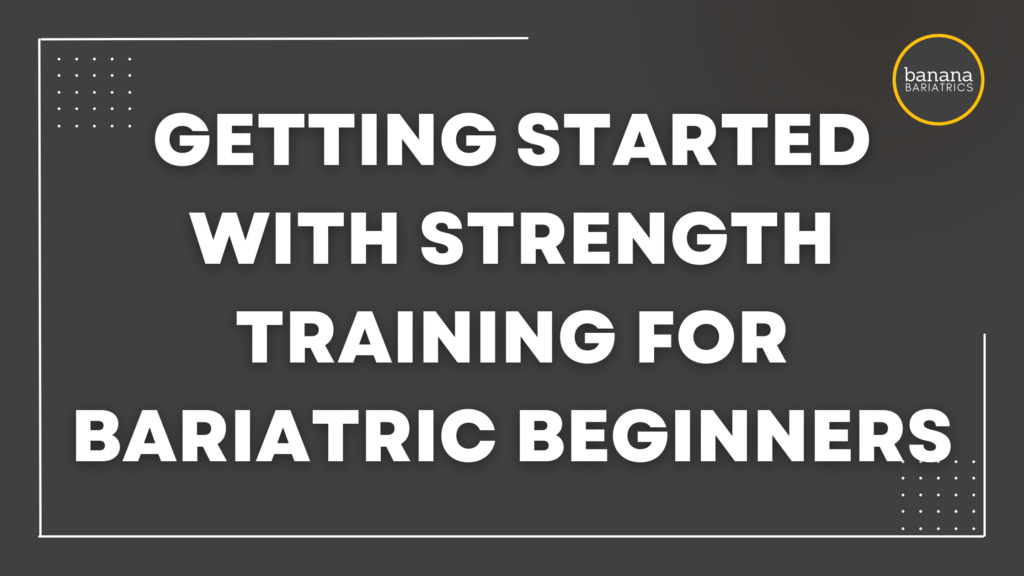
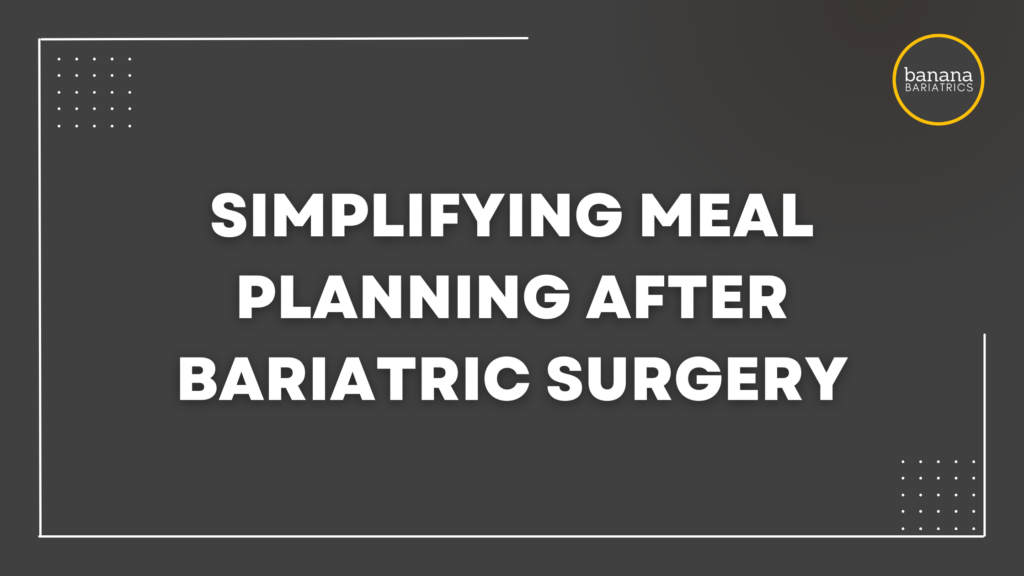
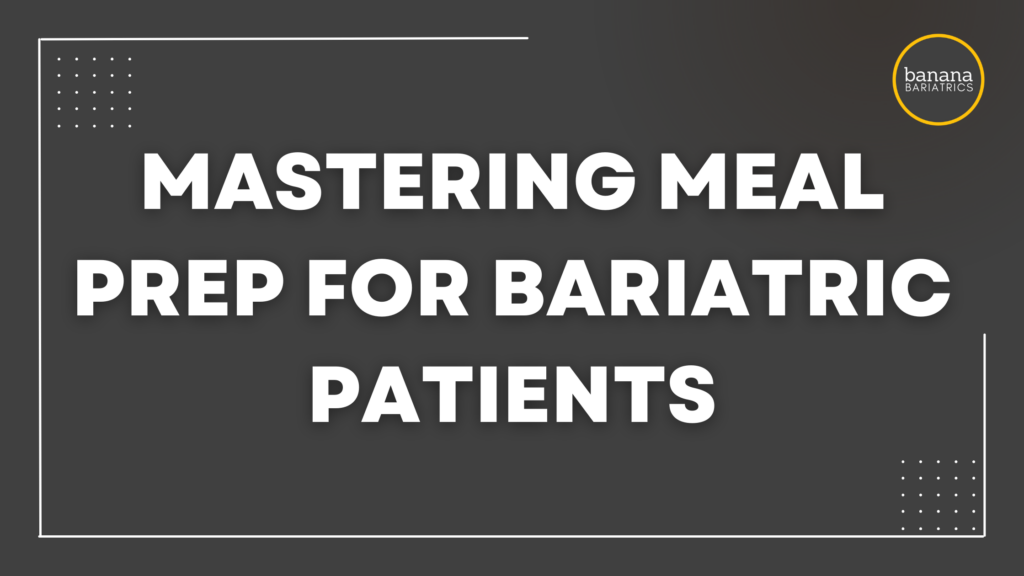
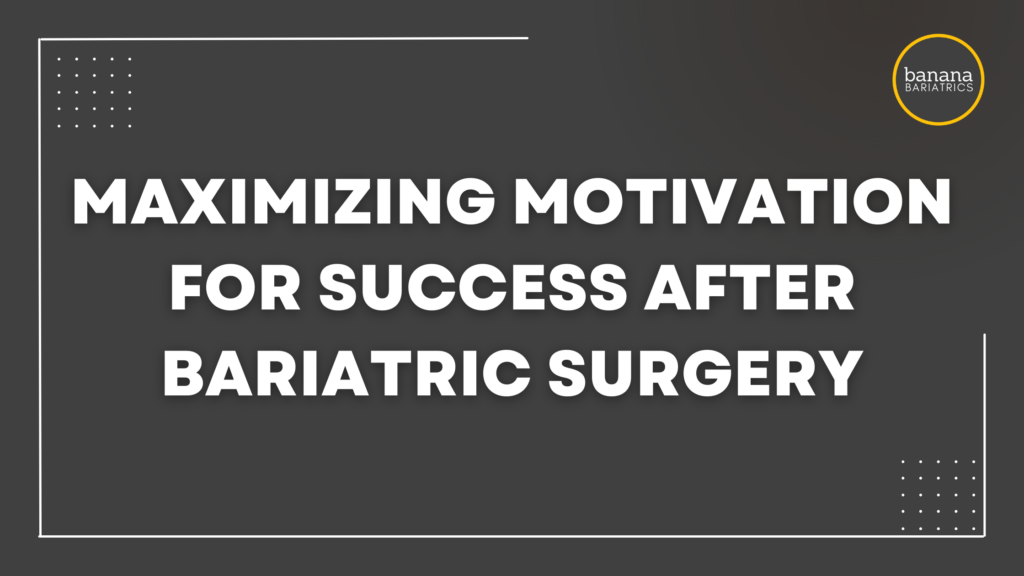

Great information, very clear and informative, thank you for sharing.
test
Glad you enjoyed reading it!
this is great!